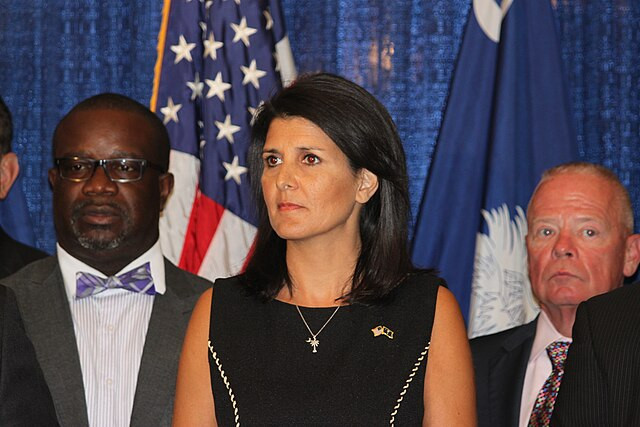Nikki Haley has clinched her first victory in the 2024 Republican primary race, triumphing over former President Donald Trump in Washington, D.C., with a significant 62.9% of the votes. This win marks a pivotal moment for Haley, the former U.S. ambassador to the United Nations, as it symbolizes her resilience in the face of daunting odds against Trump's commanding presence in the primary contests thus far. Despite this victory, Haley's path to the Republican nomination remains steep, as Trump continues to lead with a substantial delegate count and is favored in upcoming primaries.
Haley's win in the nation's capital is noteworthy for several reasons. Washington, D.C., known for its urban landscape and highly educated populace, contrasts with the rural and less-educated demographic that forms the core of Trump's support base. Trump's decision to dismiss the D.C. primary as the "Swamp" with minimal delegate value and no strategic advantage reflects his campaign's focus on regions more aligned with his voter base. Moreover, D.C.'s significant federal workforce, whom Trump has threatened to overhaul with loyalists, adds another layer to the complex political dynamics at play.
This victory awards Haley 19 delegates, a modest addition to the 1,215 needed to secure the Republican nomination. However, it serves as a crucial counter to critiques questioning her ability to win any primary contests. The win also highlights the nuanced perceptions within the Republican Party regarding Washington, D.C., often portrayed by party leaders, including Trump, as a hub of crime and elitism.
The 2016 Republican primary in D.C. offers historical context, where Trump garnered less than 14% of the vote, finishing behind other candidates without securing any delegates. This precedent, coupled with Haley's recent win, suggests a pattern of D.C. Republicans' resistance to Trump's candidacy.
Looking ahead, the primary calendar intensifies with Super Tuesday, where a substantial number of delegates across 15 states and one U.S. territory will be contested. Haley's campaign, buoyed by the D.C. victory, is poised to leverage this momentum, having already committed significant resources to Super Tuesday states in anticipation of a more competitive showing.
Trump's campaign, despite the setback in D.C., remains confident, focusing on the general election against the likely Democratic nominee, President Joe Biden. The Trump team's emphasis on their series of primary wins underscores their solidified front-runner status within the GOP, despite Haley's emerging challenge.
As the primary season progresses, Haley's D.C. win stands as a testament to her campaign's perseverance and strategic focus on areas where she can effectively contest Trump's dominance. Whether this victory can translate into broader support and more wins in the densely packed primary schedule remains to be seen. The Republican race continues to unfold, with each contest providing new insights into the party's direction and the candidates' appeal among its diverse voter base.





